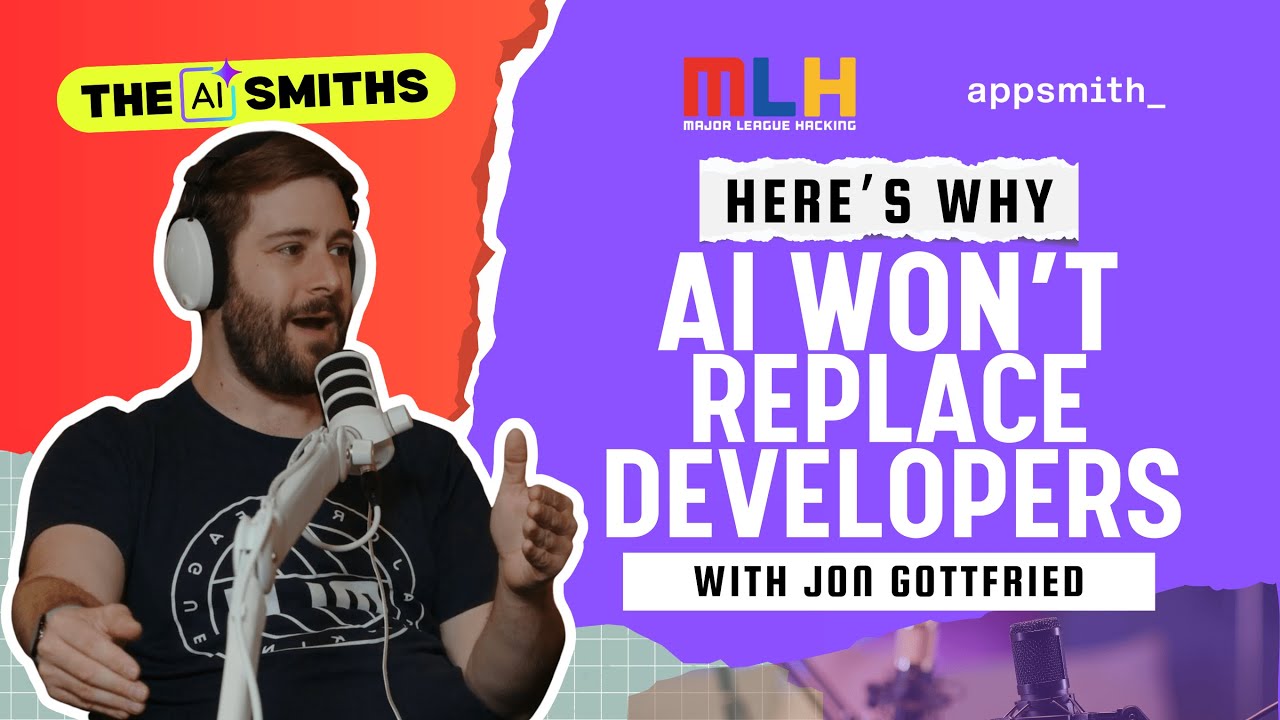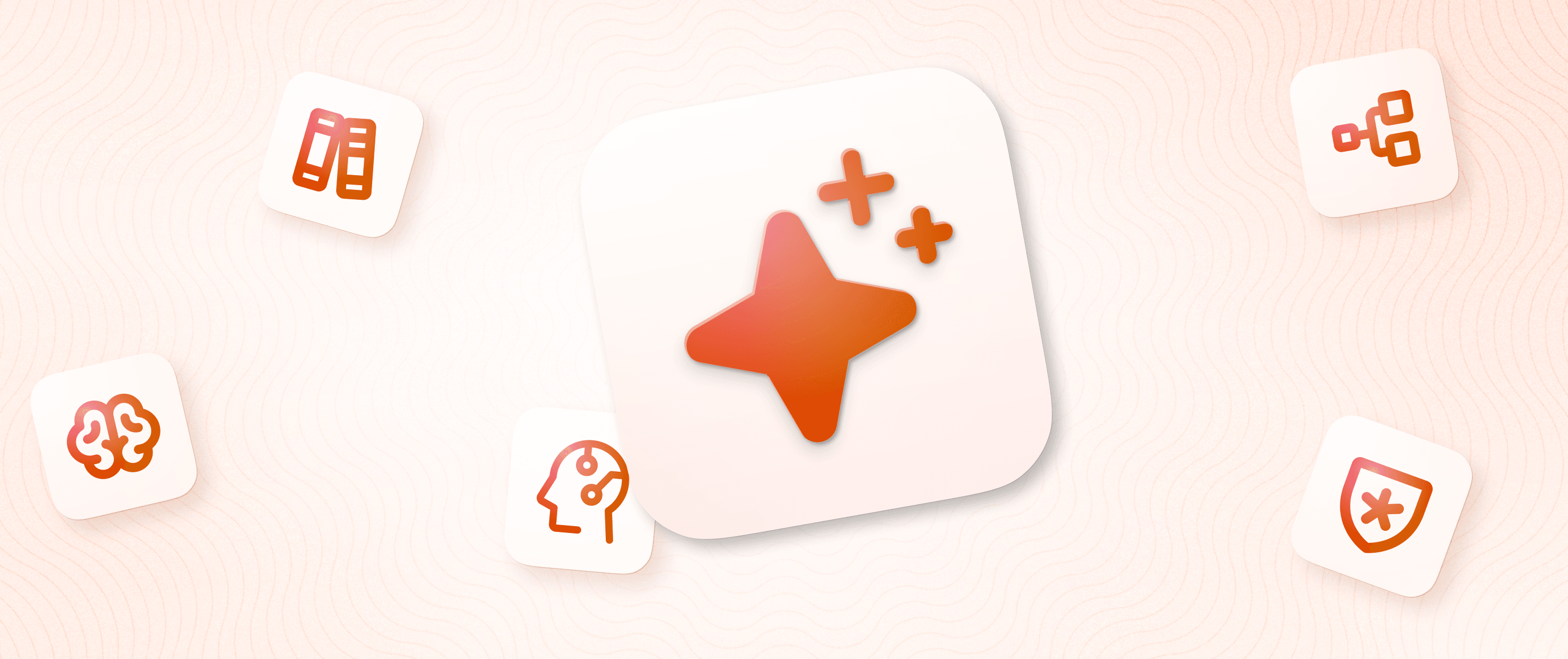Your Best Developer Tool Isn't AI, It's Community


Jon Gottfried used to picture developers the way movies do: brilliant but miserable, stuck in cubicles, coding in isolation.
That image shattered one weekend at a hackathon. It wasn’t the tech that changed everything, it was the people.

From Craigslist gig to co-founding MLH
For Jon, the co-founder of Major League Hacking (MLH), the journey into tech wasn't quite traditional. With a degree in history, he felt disconnected from the “mathy and theoretical” world of computer science.
Then, while recovering from mono and short on cash, he picked up a Drupal job off Craigslist.
He showed up to the interview in a suit, only to find the team dressed in t-shirts. Despite their differences, these “weird outcasts” (hey!) in edtech saw his potential and dragged him to his very first hackathon.
This was the first of many. At another hackathon, he got on stage and showed off a “janky app” that barely worked, but the audience’s unanticipated reaction was another turning point.
“”“...when I got on stage and showed off my janky app that was barely working they gave me a huge standing ovation and they were coming up to me like 'that's so cool! What are you gonna continue doing with it?'. And that was the spark that got me going into the tech industry... It was multidisciplinary and it was community focused and that changed the entire course of my life.”
These experiences were life-changing. Instead of rooms full of “Dilbert cubicle developers”, Jon discovered spaces buzzing with creative technologists and musicians. People weren’t there because they had to be; they were there to build projects out of sheer passion.
This led him to become a developer evangelist at Twilio, a role that eventually paved the way for him to co-found MLH.
The Arduino Moment: Why community is where the real magic is
If you’ve ever been stuck at a hackathon, like really stuck, you know this feeling.
“There's this magic moment at a hackathon... you can get up in a room of a thousand strangers and raise your hand to be like does anyone know Arduino? And... ten people will rush over to help you solve that problem.”
Jon calls this the Arduino moment. And it’s more than just technical support — it’s a psychological and educational shift. It cuts through imposter syndrome. It turns “I don’t belong here” into “I can figure this out.”
This is where the dev community shines — not just as a support system, but as the most effective classroom. Hackathons, Discord servers, and DevRel tutorials are where developers actually learn the tools they’ll use in their careers.
"The things that students need to learn largely come from industry and the people who are at the forefront of teaching developers about industry tools are developer relations folks."
This isn’t just feel-good community talk — it works. A recent study from MLH found that around 40% of students bring tech they learned at MLH events into their jobs after graduation.
The DevRel in the AI era isn’t about selling, it’s about trust
While class teaches algorithms and foundational concepts, they often miss the practical tools and frameworks that are essential for building in the industry. This applies especially to emerging AI tools.
“”"You're not here to sell your product. You're here to help communities move forward and when that happens as a result they might adopt your product"
Jon shares an anecdote from his time at Twilio, where he helped a developer with a problem unrelated to Twilio's API. That moment of genuine help created a loyal advocate for Twilio, and solidified Jons idea that trust is a more valuable currency than mere leads in your sales dashboard.
“You create a moment that is memorable and I know that that kind of stuff is difficult to measure... but that has way more lasting value than a 'click to run' ad.”
If Jon had a magic wand, he would ensure that every person in every town and city worldwide has access to technical, creative communities.
"It's really making this stuff more accessible, because once you have that magic moment of building something, even if AI does it for you, you're hooked and you start to dig deeper. I think it's the most powerful on-ramp we've ever seen into tech."
AI doesn’t change DevRel fundamentals; it makes them more important
The current widely-held idea that AI will replace developers is not shared by Jon: He thinks that rather than being a threat, AIs democratization of development is a catalyst for growth that will make community more important than ever.
“One of the big takeaways I have from DevRelCon is that the definition of what it means to be a developer is broadening... We're starting to see people come in where they know that they have a technical solution to a problem in their mind. They didn't have the skills to solve it before. AI is now enabling them to solve that problem.”
With more people building, the need for community becomes more vital because these new builders need a place to learn and find collaborators.
“...students and professionals who learn to code with AI tools have a superpower that even experienced engineers who have been out there for decades don't have. It gives the newcomers a way to move faster and a way to learn faster than ever before.”
Jon's spicy take double dip!
It’s the best time to be an engineer
A lot of the headlines say AI is killing dev jobs. Jon’s not buying it.
“All the crap in the press is doom and gloom about engineers being replaced. But that’s not what engineering is. It’s not just writing code. It’s solving problems.”
AI might help with syntax. But it won’t figure out business context, debug product decisions, or refactor your codebase so a new hire understands it in a week. The hard parts of engineering are still deeply human — and those are the parts that matter most.
AI layoffs are a convenient corporate excuse for market-driven budget cuts
“I think companies use AI as a convenient excuse for market-driven budget cuts and layoffs. It’s just the easy media narrative.”
Jon’s been talking to engineering leaders, and none of them are replacing entire teams with LLMs. Are teams being cautious about hiring? Sure. But blaming it on AI is a lazy explanation for deeper economic decisions.
DevRel is for real people, and it has to come from real people.
It’s easy to get jaded in this industry — the hype cycles, the layoffs, the relentless push for the “next big thing.” But Jon’s advice is simple:
“”“Go to a community event. Talk to someone just getting started. Their excitement will remind you why you started building in the first place.”
For developers trying to level up, switch stacks, or just get unstuck — nothing beats a good community. And for those of us who’ve been in the game for a while, that’s our cue to keep showing up, too.


